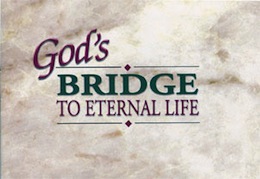Our Elders
The New Testament speaks of just two offices in a local assembly: elders and deacons (Phil 1:1). A church may have other positions for ministry (e.g., Sunday School superintendent, secretary, congregational clerk, etc.), but the Bible only mentions two offices. There are several names for elders given in the New Testament. The Bible refers to these leaders as “pastors” (shepherds), “overseers,” and “elders.” While these three terms are interchangeable, the Bible most often uses the term “elder.”
- Elders are overseers (Titus 1:5, 7).
- Elders are overseers who shepherd the church (Acts 20:17, 28).
- Elders shepherd (pastor) and oversee the church (1 Pet 5:1–2).
- Elders are the leaders of a church (1 Thess 5:12; cf. 1 Tim 5:17; 3:4–5).
Elders have the God-given responsibility to rule (govern) the church (1 Thess 5:12), administer the affairs of the church (1 Pet 5:2; Titus 1:7), and lead (shepherd) the church (Acts 20:28–29; 1 Pet 5:2–3; Jas 5:14).
Their Qualifications: What must they be?
Scripture spells out their qualifications (1 Tim 3:1–7; Titus 1:5–9). Personally, they must be mature, Spirit-filled believers. Publicly, they must be above reproach. In their families, they must be godly leaders. In the church ministry, they must be teachers of the Word.
Their Selection: How do they become elders?
God plants a genuine desire in the heart of qualified men for this office (1 Tim 3:1; 1 Pet 5:1–2). The church, a local assembly, recognizes that desire and appoints them to the office. In the early church, elders were appointed by the apostles (Acts 14:23) or their representatives (1 Tim 5:22; Titus 1:5). Today, each congregation elects its own officers, as New Testament churches did (Acts 6:1–6; 2 Cor 8:19; Acts 15:2–3, 22).
Their Number: How many elders are there?
There may be a plurality of elders (Acts 11:30; 1 Pet 5:1–5; Acts 20:17; 14:23). This is not necessary (e.g., a small church), but it is biblical that the number of elders be increased to meet the increased ministry. There is not necessarily a parity or absolute equality of elders (1 Tim 5:17). All elders do not have the same gifts and abilities; all elders do not have the same authority or areas of oversight.
Our Church: How does this work out in our fellowship?
Our elders include two men who are financially compensated so they can be engaged in this ministry full-time and four men who have other employment but carry out the same duties. The elders are charged by our Constitution with the oversight and spiritual care of the church: determining qualifications of officers, membership, spiritual care, oversight of the church property, financial matters, budget, missions, music, and worship.

